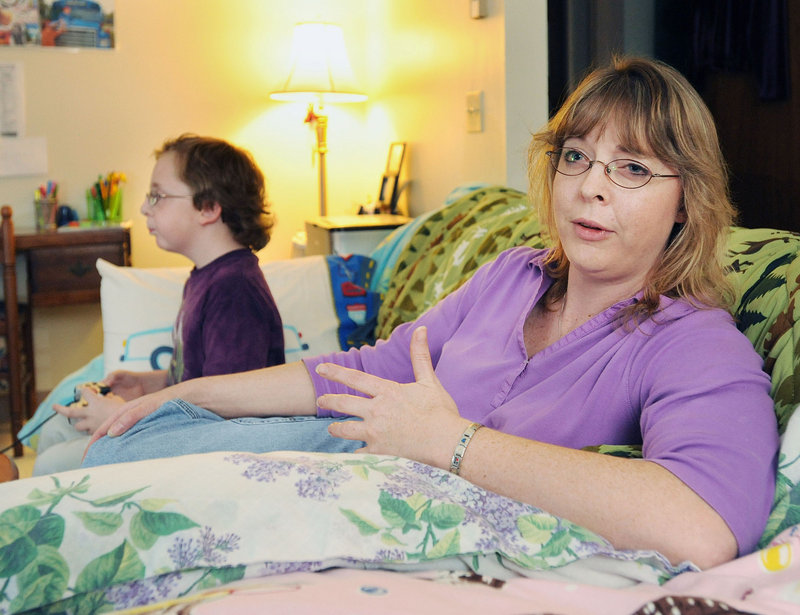As a social worker, Thea Day has seen poor people fall through the cracks of Maine’s welfare system.
She has seen people take advantage of that system, too.
But she also has seen hope restored and lives changed. That part, she experienced firsthand.
“If I didn’t have that (help), I don’t necessarily know if I would have been able to do it,” Day said.
Day, 36, grew up on a farm in western Massachusetts and never shied from hard work. In fact, she dropped out of high school, got a GED, earned a computer software certificate and went to work.
The $11 an hour wage was enough to live, but not enough to get ahead. When she became a single mother at 27, she realized she’d never earn enough to pay for child care. She moved to Caribou to live with her mother and help run her mother’s massage therapy business.
To help support her son, Day applied for food supplements, as well as health insurance through MaineCare, Maine’s Medicaid program. She also enrolled in a state program called Parents as Scholars, which helps support parents — mostly single mothers — through two or four years of college.
“Education is the only thing that’s going to get you into higher income brackets, unless you are one in a million,” she said.
She paid her own tuition to the University of Maine Presque Isle with grants and scholarships and worked two part-time jobs in addition to running her mother’s business.
The Parents as Scholars program paid for Day’s child care. Day received $363 a month in cash assistance from the state’s Temporary Assistance for Needy Families program and $290 a month in food supplements.
Day also received as much as $150 a month from child support that was paid by her son’s father.
When a single parent applies for aid, the state takes over the child support enforcement and collection. It shares some of the support with the parent, at least $50 a month, and uses the rest to cover the state and federal aid.
Maine’s Department of Health and Human Services kept enough of Day’s child support payments to effectively pay off all of the TANF cash assistance she received, even retaining portions well after she stopped getting the aid, she said.
All of the public assistance and child support amounted to as much as $803 a month for most of the time she was in school.
“It’s not easy. I will never say that it is. All I’ll say is, it’s worth it and you have to want something enough,” she said.
Day is clearly a success story, but not the only one.
Kim-Anne Perkins, Day’s social work professor in Presque Isle, said she gets two or three students each year who are receiving support through the state program.
“People who receive social assistance are perceived to be flawed,” Perkins said. “Thea represents someone who knew what she needed to do to make life better, and when people attempted to stereotype her or say she couldn’t do it, she proved them wrong.”
Day earned a degree in social work, which landed her a position that could support both her and her 9-year-old son, Jacob. She has continued to receive temporary transitional benefits to help pay for food, an effort by the state to encourage work and help people stay employed.
She earns a professional salary as a director of social work for a non-profit, working with homeless or near-homeless people in the Bangor area. She did not want to name her employer.
The job has given her a different view of Maine’s welfare system.
She does see some people who would rather collect aid than work. But that’s a lifestyle that few people choose, she said.
“There are a certain percentage of people that simply work the system,” she said, “but I don’t see a lot of folks taking advantage — not with the limited amount of assistance that’s out there…. A decent paying job will be triple what you ever make in the system.”
Day said she’s more likely to see needy people not getting enough help. Some, for example, get cut off from aid for one or two months because of a paperwork problem or a decision they have to challenge.
Day is proof to her clients that it can be done. And, now she is doing something she never could have done without the state’s help and her college degree. She’s putting money away.
“I think I’ll need to go and get a master’s degree for a higher pay grade,” she said.
Staff Writer John Richardson can be contacted at 791-6324 or at: jrichardson@pressherald.com
Send questions/comments to the editors.


